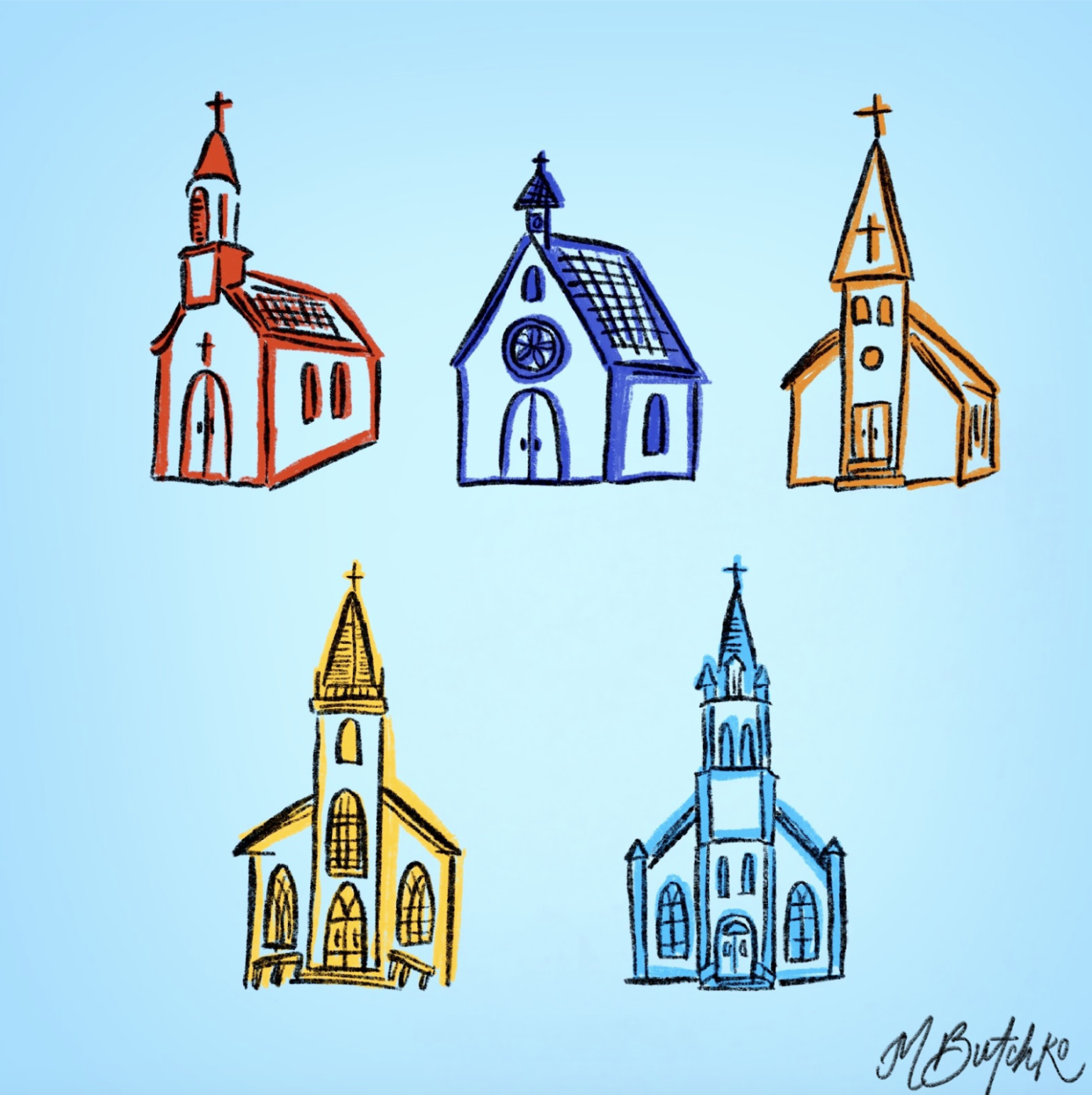
I collect churches the way other people collect stamps, except my hobby requires no money and considerably more moral flexibility. I slip into sanctuaries during off-hours, rather than the populated Sunday mass, lured by stained glass that scatters jeweled light across worn wooden floors like God’s own kaleidoscope.
My favorite specimens are Catholic churches, where every surface tells a story in marble and gold leaf. But I’m not particular. Baptist, Methodist, Lutheran. They all offer the same commodity: the chance to watch people laid bare in prayer. I sit three pews back, close enough to study their gestures, far enough to pretend I’m not intruding. Honestly, I am more so people watching than church watching.
The most devout pray with such intensity they sometimes drift off mid-sentence — proof that even God’s most loyal can’t always stay awake on the job. Mothers juggle toddlers and prayer requests, shushing children in a place meant for peace. At times people cry. I invent reasons for their tears: divorce papers, medical bills, a son who just came out as a theater major.
I’ve made a system of these voyeuristic pilgrimages. For each stranger, I draft an imaginary prayer, then tack on a “God bless them” as insurance. I don’t feel guilty. After all, that’s what confession is for.
Churches are contradictions: public monuments for private encounters. When someone closes their eyes in silent confession, intimacy is performed in plain sight. My presence turns their prayer into theater. The businessman hunched in his lunch hour. The teenage girl glaring at the crucifix with undisguised rage. They become actors in my private drama.
I crave this rare moment of vulnerability. It’s the only place I see strangers stripped of their careful masks. But I also wonder if prayer itself can become another mask. The Hendersons, punctual as bells, kneel with textbook posture and sing hymns in perfect harmony. Yet I’ve watched Mrs. Henderson snap at cashiers, seen Mr. Henderson cut off the elderly in the parking lot. Their Sunday performance is immaculate, but their Wednesday character needs work.
This contradiction fascinates and troubles me. Christian theology says all are sinners in need of grace, yet I find myself obsessed with specifics of their possible transgressions. Their faces are clues to sins I’ll never know. Watching them, I wonder whether they want transformation or absolution through rehearsed ritual. The distinction reveals whether forgiveness is medicine or morphine, whether it heals or just numbs the guilt long enough to repeat the same mistakes.
The more I pry into their spiritual lives, the wider the routes I am willing to take to circumvent my own. Cataloguing strangers’ prayers is easier than admitting what I might need to confess. When I invent prayers for them, I suspect I’m voicing my own unspoken needs through borrowed voices. But I don’t invent their feelings. Grief, fear, longing. I know these well, even if the reasons behind them are different.
I watch a man’s shoulders contract, pulling inward as if his body is trying to protect from the pain inside. His breathing shifts. First shallow and controlled, then fracturing into irregular gasps that sound like drowning on dry land. His body folds forward over the pew. Pain collapses the persona he carried through the doors. His suffering looks like mine.







